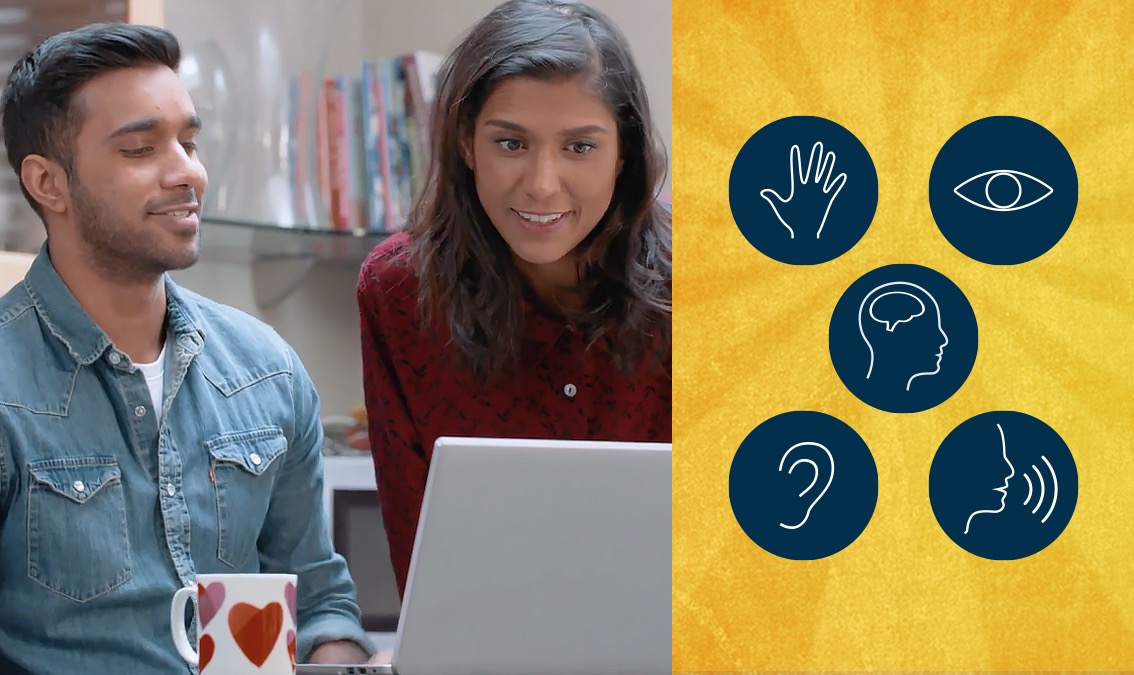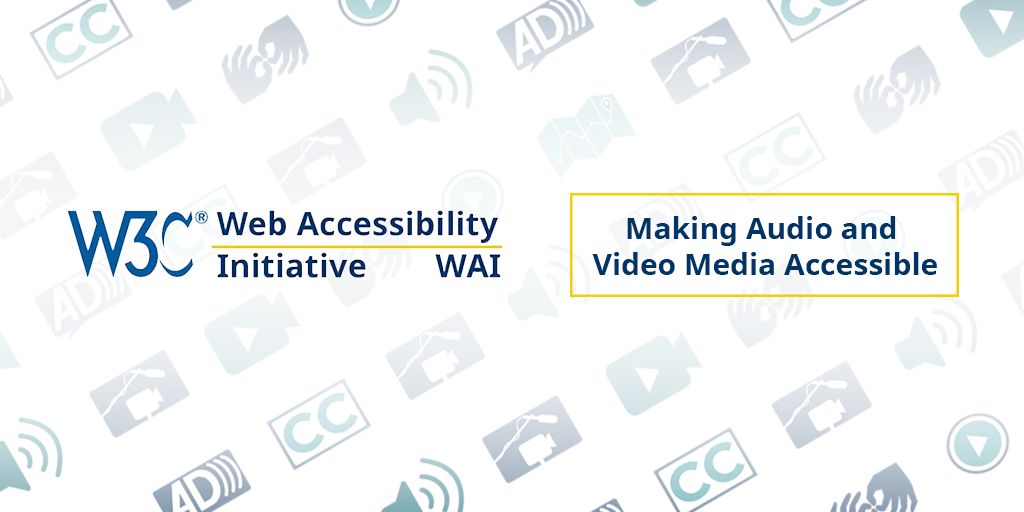See What We're Working On this month – Accessibility Activities and Publications
Cognitive Accessibility Design Patterns - New User Interface
(2022-03-31)
Cognitive accessibility objectives and design patterns are now available as a set of web pages from Cognitive Accessibility Guidance list. The objectives and design patterns are “supplemental guidance” to WCAG 2 as explained in About Supplemental Guidance. They are part of W3C work on accessibility for people with cognitive and learning disabilities introduced in Cognitive Accessibility at W3C.
Updated Resource: Designer Modules in Curricula on Web Accessibility
(2022-02-10)
New designer modules are now published in the Curricula on Web Accessibility. This curricula provides a framework for creating courses on digital accessibility, for including accessibility in other courses, and for reviewing and comparing existing and proposed courses. The February 2022 publication adds new designer modules. These modules focus on teaching accessibility to visual, information, interaction, and UX designers.
For Review: Accessibility of Remote Meetings - First Public Working Draft
(2021-10-14)
The Working Draft of Accessibility of Remote Meetings is available for review and comment. This potential resource relates to How to Make Your Presentations Accessible to All and Making Audio and Video Media Accessible. We welcome input on how this information can better help vendors, organizations, and individuals make remote meetings more accessible to people with disabilities. For more information, see: e-mail on Remote Meetings and blog on Remote Meetings
For Review: Natural Language Interface Accessibility User Requirements - First Public Working Draft
(2021-10-12)
Natural Language Interface Accessibility User Requirements("NAUR")Working Draft is available for review and comment. This document outlines accessibility user needs, requirements, and scenarios for natural language interfaces. A natural language interface is a user interface in which the user and the system communicate via a natural (human) language. The user provides input as sentences via speech or other input, and the system generates responses as sentences delivered by speech, text, or another modality. For more information, see: e-mail on NAUR and blog on NAUR
Updates In-Progress: WCAG 3.0 Working Draft
(2021-06-08)
Some updates are available to W3C Accessibility Guidelines (WCAG) 3.0 Working Draft. For an introduction, links, and latest status, see the WCAG 3 Introduction. For specific infomation on these updates, see e-mail Updates In-Progress: WCAG 3.0 Working Draft.
Invitation: WAI-CooP First Open Meeting
(2021-06-01)
You are invited to the WAI-CooP First Open Meeting, Online on 23 June 2021. We encourage participation from people interested in: digital accessibility implementation in Europe and internationally; guidance on available web accessibility training, tools, and resources; and exchanges on the European Union (EU) Web Accessibility Directive (WAD). Agenda, logistics, and registration information is in the meeting page. This meeting is free, and registration is required.
RTC Accessibility User Requirements (RAUR) Note Published
(2021-05-25)
RTC Accessibility User Requirements (RAUR) is published as a Working Group Note. Real-time communication (RTC) provides real-time peer to peer audio, video, and data exchange directly between supported user agents. This enables instantaneous applications for video and audio calls, text chat, file exchange, screen sharing, and gaming. RAUR describes various accessibility related user needs, requirements, and scenarios for real-time communication (RTC) applications. These user needs should drive accessibility requirements in various related specifications and the overall architecture that enables RTC.
See All News Subscribe to WAI News

